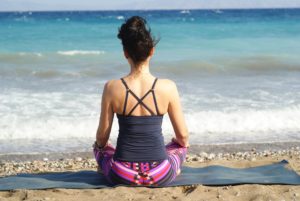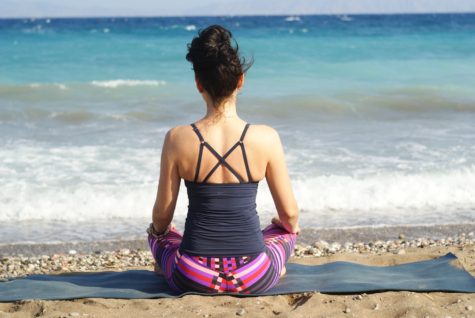NEW ROCHELLE, N.Y. — Individuals battling depression may be able to experience a reduction in symptoms through yoga and calming breathing techniques, a new study finds.
Specifically, researchers found that adults with major depressive disorder who practiced Iyengar yoga and coherent breathing for 12 weeks were rewarded with reduced depression scores.
The 30 study participants were adults between the ages of 18 and 64 who were either not medicated for depression or had been on a stable dose of antidepressants for more than three months. Researchers used a Depression Inventory measure to evaluate the subjects’ depressive symptoms before and during the study, which they refer to as an integrative health intervention.

Participants joined either a high-dose intervention of three yoga classes per week or a low-dose intervention of two classes per week along with coherent breathing at a rate of five breaths per minute.
Iyengar focuses on the alignment of the body in poses, or asanas, as well as the integration of the breath into the exercise. Practitioners of Iyengar yoga often use props such as blocks, belts and pillows to enable them to complete poses safely and in a customized fashion.
Along with the yoga, participants learned coherent breathing. Stephen Elliott, a primary developer of the coherent breathing method, sums it up it with this phrase: “breathe, then relax.” He adds that coherent breathing typically involves slower and deeper breaths that calm the central nervous system.
Patricia L. Gerbarg, M.D., who co-wrote The Healing Power of Breath, told the Huffington Post in an interview that one should breathe “gently and smoothly,” when carrying out this practice.
The study explains that the depressive scores of the participants “declined significantly from screening” to week 12. Participants who completed three yoga classes a week were more likely to experience lower depressive symptoms.
“The practical findings for this integrative health intervention is that it worked for participants who were both on and off antidepressant medications, and for those time-pressed, the two times per week dose also performed well,” says The Journal of Alternative and Complementary Medicine Editor-in-Chief John Weeks in a press release.
These findings were published in the article “Treatment of Major Depressive Disorder with Iyengar Yoga and Coherent Breathing: A Randomized Controlled Dosing Study,” in The Journal of Alternative and Complementary Medicine.
This study was coauthored by Richard Brown, M.D., of the Columbia University College of Physicians and Surgeons and John Eric Jensen, Ph.D., of the Harvard School of Medicine and McLean Hospital, along with their colleagues.

Comments